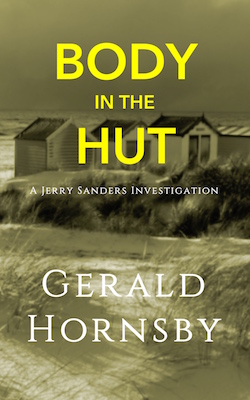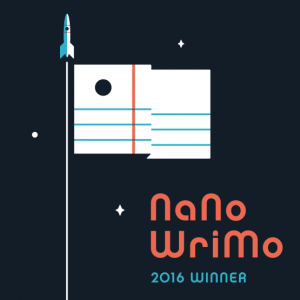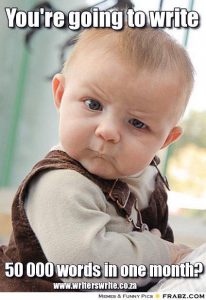
It’s strange, looking back. 2016 was an interesting year, away from writing – we had the EU referendum, and the USA elections, both of which returned surprising, not to say, unexpected, results. Both results could see huge changes in what happens in both the UK and the USA in the coming months and years The binary voting system (voting for just one option or another) had created a huge fallout, with a lot of animosity on both sides toward the other. Strange times.
2016 also saw the passing of a number of heroes, including David Bowie, Prince, Mohamed Ali, Robert Vaughn and Alan Rickman. Just before the end of the year, Carrie Fisher died after a heart attack, and her mother, Debbie Reynolds, died a day later. Very sad. 2016 was a year of change.
Looking back on last New Year, it’s interesting to read my review of 2015 and my look ahead to 2016.
https://gerald-hornsby.com/blog/2015/12/29/2015-what-was-that-all-about-then/
https://gerald-hornsby.com/blog/2015/12/31/welcome-2016/
1) NaNoWriMo
Yes, I ‘won’ it again, my 12th win in 13 attempts. For this year, I wrote one-and-a-bit short novels in the Cozy Mystery genre. I fancied trying something different for a change. I was pleased with how it came out, writing without much of a plan but trying to keep to my “Eight Part Novel Structure” (stolen from various other sources). After NaNo, I continued with book 2 and want to get book 3 well underway, if not drafted, before I go back and edit the others.
2) Literary Roadhouse http://www.literaryroadhouse.com/
I continued my podcasting with the LRH gang. That’s the weekly literary short story podcast, the monthly book club, and new for 2016, the weekly Bradbury Challenge, where we committed to write at least one short story a week. Some of us (ahem) managed to do it, while others didn’t, but it was, nonetheless, a good challenge with plenty of accountability on a week-by-week basis. I’m not sure if we’ll repeat it for 2017, but I’d like to, maybe with a monthly podcast.
3) Word count
Over 200,000 words on novels, short stories, blog posts and writing-related non-fiction. Pretty good for one year. There were over 50,000 words in the rewrite (still, as yet, incomplete) of Death In Print. There were over 50,000 words in the Coffee Shop Mystery series. Nearly 50,000 words on short stories of one form or another. 15,000 on a collection of short stories called Archetypes. Over 6,000 on something called Dark Money, which I can’t remember now 😉
4) Writing groups
In supporting a local writer, I unwittingly joined another local writing group. So that’s one in St. Osyth, one in Harwich and one in Frinton. I like writing groups, me. They are each very unique, and I get something different from each of them.
5) Reading groups
Apart from the Literary Roadhouse monthly book club and the Pub Book Club, there were no additions to my reading accountability anxiety. Thank goodness. Too much pressure.
SUMMARY
It’s been a good year. I’ve read a lot of books, most of them pretty good, a couple that were brilliant – the Man Booker prize-winning The Sellout by Paul Beatty and the surprisingly no-prize-winning-yet White Light by Vanessa Garcia. Both stunning books in their own way. I’ve written a lot of short fiction (over 60 pieces). I’ve rewritten a previous novel and written getting on for two small novels. That’s a pretty good year.





